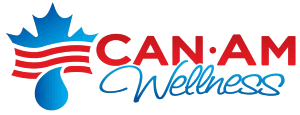Things You Can Do For Cleaner Air
Drive Less — Drive Smart
About half of the air pollution comes from cars and trucks. Two important ways to reduce air pollution are to drive less — even a little less — and to drive smart. Taking fewer trips in your car or truck helps cut air pollution. And adopting smart driving habits reduces your car’s emissions.
Driving less doesn’t mean you have to stay home. Try combining driving with alternative modes of transportation:
- Carpool.
- Walk or ride a bicycle.
- Shop by phone or mail.
- Ride public transit.
- Telecommute.
Driving smart keeps pollution at a minimum. *
- Accelerate gradually.
- Use cruise control on the highway.
- Obey the speed limit.
- Combine your errands into one trip.
- Keep your car tuned and support the smog check program.
- Don’t top off at the gas pumps.
- Replace your car’s air filter.
- Keep your tires properly inflated.
- What about smoking vehicles?
* What you do when you are stuck in traffic and not “driving” can be very important as well. Consider turning your engine off if you will be idling for long periods of time.
A smart investment would be to get an air purifier for the car.
That’s not all. When shopping for your next car…
- Look for the most efficient, lowest polluting model–or even use either a non-polluting car or zero emission vehicle. Visit these web sites for information that will help you identify clean and fuel efficient vehicles in any part of the country:
If you must drive on days with unhealthy air, drive your newest car. Newer cars generally pollute less than older models.
Choose Air-Friendly Products
Many products you use in your home, in the yard, or at the office are made with smog-forming chemicals that escape into the air. Here are a few ways to put a lid on products that pollute:
- Select products that are water-based or have low amounts of volatile organic compounds (VOCs).
- Use water-based paints. Look for paints labeled “zero-VOC.”
- Paint with a brush, not a sprayer.
- Store solvents in air-tight containers.
- Use a push or electric lawn mower.
- Start your barbecue briquettes with an electric probe, or use a propane or natural gas barbecue.
Save Energy
Saving energy helps reduce air pollution. Whenever you burn fossil fuel, you pollute the air. Use less gasoline, natural gas, and electricity (power plants burn fossil fuels to generate electricity):
- Turn off the lights when you leave a room.
- Replace energy hungry incandescent lights with fluorescent lighting.
- Check with your utility company for energy conservation tips, like purchasing energy saving appliances.
- Use a thermostat that automatically turns off the air conditioner or heater when you don’t need them.
- Add insulation to your home.
- Use a fan instead of air conditioning.
- Use an EPA-approved wood burning stove or fireplace insert.
- Heat small meals in a microwave oven.
- Insulate your water heater.
- Install low flow showerheads.
- Dry your clothes on a clothesline.
Waste Not
It takes energy to make and sell the products we use. Here are ways to cut energy use, reduce air pollution, and save money.
- Choose recycled products.
- Choose products with recyclable packaging.
- Reuse paper bags.
- Recycle paper, plastics, and metals.
- Print and photocopy on both sides of the paper.
Watch out for the small stuff
When you breathe, very small particles — such as dust, soot, and acid droplets — can slip past your lung’s natural defense system. These particles get stuck deep in your lungs and may cause problems — more asthma attacks, bronchitis and other lung diseases, decreased resistance to infections, and even premature death for the elderly or sick.
Micro plastics are now everywhere. There are up to 68,415 plastic fibers each year just from the plastic dust particles landing on our plates during meals. Tap water, bottled water and sea salt also come with a “side order” of microplastics. (regarding bottled water, the millions of bottles created daily, then transported from factory to your home, causes more carbon omissions than you can imagine. Just one water purifier cartridge can help from having about eight thousand plastic water bottles being manufactured, then buried into the ground.)
Here are a few things you can do to reduce particulate matter pollution and protect yourself:
- Don’t use your wood stove or fireplace on days with unhealthy air.
- Avoid using leaf blowers and other types of equipment that raise a lot of dust. Use a rake or broom instead.
- Drive slowly on unpaved roads.
- Drive less, particularly on days with unhealthy air.
- Avoid vigorous physical activity on days with unhealthy air.
Know The Inside Story
Air pollution is a problem indoors and out. Most people spend at least 80 percent of their lives indoors. Here are some ways you can reduce pollution in your home, office or school:
- Don’t smoke. Send smokers outside.
- Products such as cleaning agents, paints, and glues often contain harmful chemicals. Use them outdoors or with plenty of ventilation indoors.
- Use safer products, such as baking soda instead of harsher chemical cleaners.
- Don’t heat your home with a gas cooking stove.
- Have your gas appliances and heater regularly inspected and maintained.
- Clean frequently to remove dust and molds.
Visit EPA’s Indoor Air Quality Home Page for more information.
Speak Up For Clean Air
Do what you can to reduce air pollution. It will make a difference. Use your civic influence to improve regional and national air pollution standards:
- Write to your local newspaper. Support action for healthy air.
- Let your elected representative know you support action for clean air.
